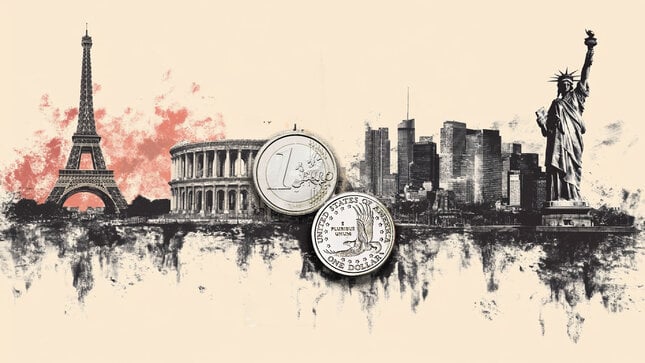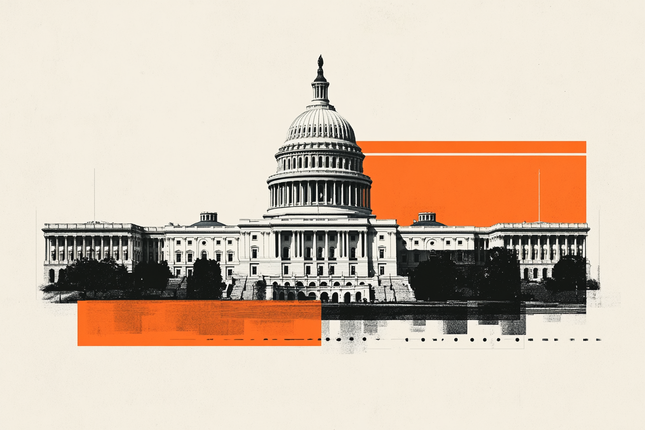The Medici Conference in Los Angeles was host to several speakers, but there is just one that I think was outstanding. SEC Commissioner Hester Peirce seems to have a very progressive outlook toward the cryptocurrency sphere and is optimistic about the implementation of the technology across a much broader spectrum.
While the speech begins with the standard disclaimer that it represents her own thoughts and opinions, not that of the SEC or other commissioners, she does bring some hope that regulation of the cryptocurrency world is not just a model to bring it to heel and force it to work under old-world mentality.
Taking Some Responsibility
“Innovation is always a challenge for regulators. We are used to the way things have been done. “
She’s not wrong. Virtually every government department, in every country, which regulates something is doing so in reverse, using old rules and old laws to fit new advances and new developments. There are three problems with this approach;
- It takes a long time for governments and regulatory bodies to catch on.
- Sometimes the new development is just too different to fit old models.
- Allowing law-enforcers/regulators the rights to “interpret” old laws to fit vastly different new developments is bad for new ideas and holds back innovation.
The concept of digital currency is not new, the idea and concept were posited for over a decade before Satoshi Nakamoto published the Bitcoin whitepaper.
Governments and regulatory bodies are rarely proactive in their approach to changing things like laws – laws that may have been in place for over 100 years – because “laws are the bedrock of civilised society” and changing them takes a lot of reflection. Although perhaps not decades.
Asking Big Questions – What is Money?
“’Money’ means, yes, those crumpled bills some of us still carry. But it also means any number of ways of storing and redeeming value. It’s money not because of its form, but because of its function. “
A big question in terms of the cryptocurrencies currently in question. In the past we have always considered money to be the specific state-issued currency of choice (£, $, € etc.), but ever since the advent of credit and debit cards ‘money’ has meant several different things.
It has become a series of numbers electronically input into our bank accounts, and another series of electronic numbers transferred to the vendor when you buy something with your card. It only becomes physical money when it’s taken out of an ATM.
What about the tokens for the fun fair? You may have bought tokens a few years before, at your last visit, for €1.50 and you still have some left. You go to the fair again and they’re still using the same tokens but now they’re charging €2.50. You can still use your old tokens from a few years ago but they have gained in value. You could sell them to other fairground visitors and make a profit or you could just ride the attractions at an apparent discount. The tokens still have value in the fun fair.
Seeing the way forward
“Technology’s promise is too great, however, for us to bury our heads in the sand.”
This is a great perspective for encompassing all development, whether in the financial world or not. Accepting that the blockchain technology, the backbone of cryptocurrency development, can change aspects of the world for the better is refreshing.
Too many old-school financial experts heavily lean on the side of how disruptive the implementation of blockchain tech would be and the potential harm it could do to traditional banking.
Asking for help in understanding (and offering it too)
“I am here today to ask you and others to help us learn more about the technology so that we are able to think about the regulatory obstacles that may stand in the way of crypto-technology’s ability to improve our lives.”
The model of the cryptocurrency and the technology at its foundation has primarily come from the tech world, not the financial world. When setting up their organisations the new start-ups consult financial lawyers (many lawyers) to ensure that they are operating within the confines of the law. Until recently none have voluntarily consulted with the regulatory bodies that enforce and interpret those same laws.
This lack of communication between the cryptocurrency world and the bodies that may actually have governance over them has caused the situation where their only interaction has been in the form of enforcement. However, they are trying to enforce interpreted law without a full understanding of how crypto works.
This is an inescapable problem that can only be fixed by voluntary collaboration between crypto-based organisations and the appropriate regulatory body.
Changing the way we look at regulators
Perhaps we always see regulators and law-enforcers as “Big Bad Wolves” coming to blow down our houses and cripple our creativity. And such it has probably often been from ancient times when trying to replace superstition with science, belief with facts or even switching from a flat disc to a globe (and possibly back again).
There has always been a certain enmity between the holders of the established order and the creative innovators. Then again, it’s not very often that something so new takes off so quickly that a new order needs creating to welcome and incorporate beneficial innovation.
All big changes in thinking require people to collaborate and share knowledge. Not just with supports but even more so with detractors and the keeps of the law.
All essays, research and information found above represent the analysis and opinion of Leverate only. As such it may prove wrong and be a subject to change without notice. Opinions and analysis were based on data available to the author of the respective essays at the time of writing. Although the information provided above is based on careful research and sources that are believed to be accurate, Leverate does not guarantee the accuracy or thoroughness of the data or information reported. The opinions published above are neither an offer nor a recommendation to purchase or sell any securities. Leverate is not a Registered Securities Advisor. By reading Leverate’s reports you fully agree that they will not be held responsible or liable for any decisions you make regarding any information provided in these reports. Investment trading and speculation in any financial markets may involve risk of loss.e risk of loss.
Editors’ Picks

EUR/USD: US Dollar comeback in the makes? Premium
The US Dollar (USD) stands victorious at the end of another week, with the EUR/USD pair trading near a four-week low of 1.1742, while the USD retains its strength despite some discouraging American data released at the end of the week.

Gold: Escalating geopolitical tensions help limit losses Premium
Gold (XAU/USD) struggled to make a decisive move in either direction this week as it quickly recovered above $5,000 after posting losses on Monday and Tuesday.

GBP/USD: Pound Sterling braces for more pain, as 200-day SMA tested Premium
The Pound Sterling (GBP) crashed to its lowest level in a month against the US Dollar (USD), as critical support levels were breached in a data-packed week.

Bitcoin: No recovery in sight
Bitcoin (BTC) price continues to trade within a range-bound zone, hovering around $67,000 at the time of writing on Friday, and falling slightly so far this week, with no signs of recovery.

US Dollar: Tariffed. Now What? Premium
The US Dollar (USD) reversed its previous week’s decline, managing to stage a meaningful rebound and retesting the area just above the 98.00 barrier when tracked by the US Dollar Index (DXY).
RECOMMENDED LESSONS
Making money in forex is easy if you know how the bankers trade!
I’m often mystified in my educational forex articles why so many traders struggle to make consistent money out of forex trading. The answer has more to do with what they don’t know than what they do know. After working in investment banks for 20 years many of which were as a Chief trader its second knowledge how to extract cash out of the market.
5 Forex News Events You Need To Know
In the fast moving world of currency markets where huge moves can seemingly come from nowhere, it is extremely important for new traders to learn about the various economic indicators and forex news events and releases that shape the markets. Indeed, quickly getting a handle on which data to look out for, what it means, and how to trade it can see new traders quickly become far more profitable and sets up the road to long term success.
Top 10 Chart Patterns Every Trader Should Know
Chart patterns are one of the most effective trading tools for a trader. They are pure price-action, and form on the basis of underlying buying and selling pressure. Chart patterns have a proven track-record, and traders use them to identify continuation or reversal signals, to open positions and identify price targets.
7 Ways to Avoid Forex Scams
The forex industry is recently seeing more and more scams. Here are 7 ways to avoid losing your money in such scams: Forex scams are becoming frequent. Michael Greenberg reports on luxurious expenses, including a submarine bought from the money taken from forex traders. Here’s another report of a forex fraud. So, how can we avoid falling in such forex scams?
What Are the 10 Fatal Mistakes Traders Make
Trading is exciting. Trading is hard. Trading is extremely hard. Some say that it takes more than 10,000 hours to master. Others believe that trading is the way to quick riches. They might be both wrong. What is important to know that no matter how experienced you are, mistakes will be part of the trading process.
The challenge: Timing the market and trader psychology
Successful trading often comes down to timing – entering and exiting trades at the right moments. Yet timing the market is notoriously difficult, largely because human psychology can derail even the best plans. Two powerful emotions in particular – fear and greed – tend to drive trading decisions off course.


